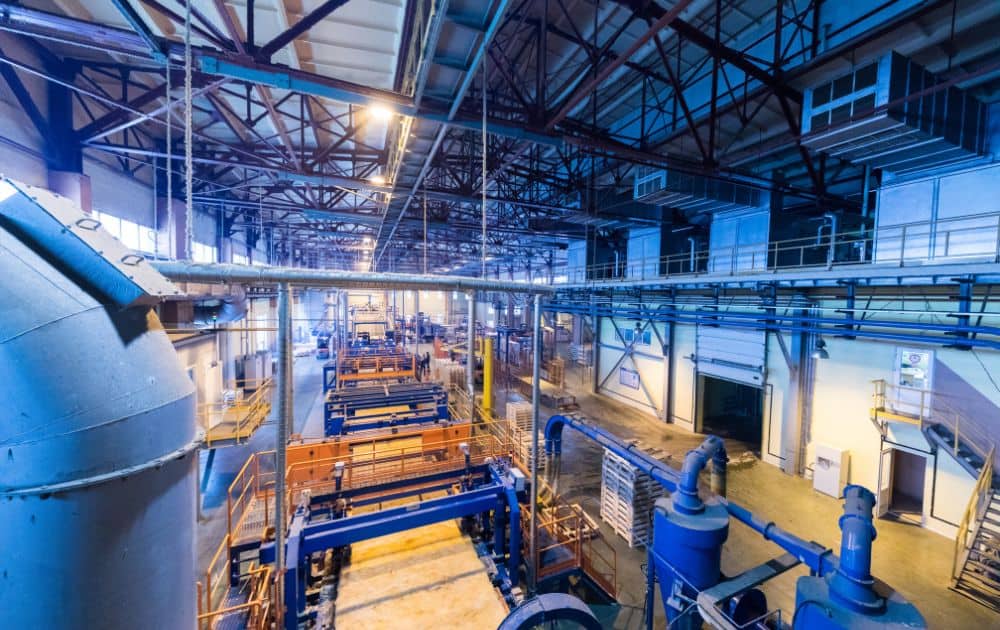Manufacturing is often stereotyped as being slow to adopt new technologies. But the reality is quite different. Manufacturers were some of the first to embrace business computing in the 1960s, developing large, integrated pioneering technologies like CAD and robotics.
However, cloud computing has been a slower burn for manufacturing. On-premise systems held manufacturers back. Yet, the modern manufacturing landscape is vastly different. It's now driven by short-lived consumer products and cloud computing fits this dynamic environment.

Why Cloud Computing is Essential for Modern Manufacturing
Traditional manufacturing environments, burdened by on-premise IT infrastructure, struggle to keep pace with the demands of today's dynamic industry. Cloud computing offers a solution to enable manufacturers to achieve greater agility, efficiency, and cost-effectiveness.
- Agility: Cloud-based solutions are inherently scalable. Manufacturers can instantly access additional computing resources during peak periods or scale down during slower times. This eliminates the need for expensive upfront investments in hardware.
- Improved Collaboration: Cloud computing fosters a more connected environment. Accessible from any device with an internet connection, cloud software allows geographically dispersed teams to work together seamlessly on projects.
- Enhanced Talent Acquisition and Retention: The younger generation of tech-savvy workers expects modern tools and a flexible work environment. Cloud computing allows manufacturers to attract and retain top talent by offering a dynamic work platform.
- Reduced Costs: Cloud computing operates on a pay-as-you-go model, eliminating the upfront capital expenditure required for traditional infrastructure. Manufacturers only pay for the resources they use, freeing up valuable capital for investments.
- Simplified IT Management: Managing and maintaining complex on-premise IT systems can be a significant burden for manufacturers. Cloud computing removes this burden by shifting responsibility to the cloud provider.
- Improved Disaster Recovery and Business Continuity: Cloud computing offers superior disaster recovery capabilities. Data is stored in geographically distributed data centers, ensuring business continuity even in unforeseen circumstances.
- Advanced Analytics and Machine Learning: Cloud computing provides access to powerful computing resources and vast data storage capabilities. Manufacturers can leverage these resources for advanced analytics and machine learning applications.
Cloud computing is no longer an option for modern manufacturing; it's a necessity. By embracing the cloud, manufacturers can unlock a new era of agility, efficiency, and cost-effectiveness, positioning themselves for long-term success in the global marketplace.
Unlocking the Potential of Cloud
Cloud computing in manufacturing goes beyond just storing data remotely. It opens doors to a new way of operating, empowering manufacturers with increased efficiency, improved quality control, and access to advanced technologies. Here's how the cloud unlocks this potential:
1. Streamlined Product Development
Cloud-based manufacturing platforms connect companies with pre-vetted suppliers and manufacturers. This eliminates the need for extensive searching and vetting processes, allowing you to focus on product design and innovation.
Imagine an entrepreneur with a brilliant product idea. Traditionally, they'd spend weeks finding qualified manufacturers. With a cloud platform, they can receive quotes and connect with suitable partners almost instantly, significantly reducing time-to-market.
2. Enhanced Quality from Design to Production
Cloud-based solutions can analyze the manufacturability of a product during the design phase. The software can assess factors like geometric dimensions and identify potential production hurdles early on.
This allows for adjustments to be made before physical prototypes are created, improving savings on production costs. Additionally, cloud-based quality control systems can be integrated with manufacturing equipment.
3. Predictive Maintenance and Optimized Production
Cloud computing empowers manufacturers with advanced data analytics and machine learning (ML) capabilities. Sensor data from machines can be collected and analyzed in the cloud, identifying patterns and predicting equipment failures.
This proactive approach to maintenance prevents costly downtime and ensures smooth production flow. Furthermore, ML algorithms can analyze historical data to optimize production processes, identify bottlenecks, and recommend adjustments for improved efficiency.
4. Integration and Collaboration Across the Supply Chain
Cloud-based systems act as a central hub, seamlessly integrating data from various partners, platforms, and devices across the supply chain. This eliminates information silos and fosters real-time collaboration.
Picture a manufacturer receiving real-time updates on raw material availability. This allows for better production planning. Cloud-based communication tools further enhance collaboration, ensuring a smooth flow of goods.
5. Accessibility and Scalability for the Modern Manufacturer
The cloud offers a significant advantage for geographically dispersed manufacturing operations. Employees, regardless of location, can access design files, production data, and other critical information from any web-enabled device.
This fosters remote collaboration and improves overall agility. Additionally, cloud resources are inherently scalable. Manufacturers can easily increase or decrease storage and processing power based on seasonal demands or project requirements.
Choosing the Right Cloud Solution for Manufacturing Success
Selecting the most suitable cloud computing solution for your manufacturing operation requires careful consideration. Here's a breakdown of the four main deployment models, along with their strengths and how they align with specific manufacturing needs:
1. Software as a Service (SaaS)
Ideal for: Manufacturers seeking specialized applications without upfront licensing costs. Cloud-based ERP (Enterprise Resource Planning), MES (Manufacturing Execution System), and PLM (Product Lifecycle Management) solutions fall under SaaS.
Benefits: Easy deployment, minimal IT maintenance, automatic updates, and subscription-based pricing that scales with your business.
Considerations: Data security may be a concern for some manufacturers, and customization options might be limited compared to on-premise solutions.
2. Public Cloud
Ideal for: Manufacturers with fluctuating workloads or requiring on-demand access to computing resources. This could include tasks like complex simulations or big data analytics.
Benefits: Highly scalable and cost-effective, offering resources like storage and processing power that can be easily provisioned and de-provisioned as needed.
Considerations: Data security is a crucial factor, and manufacturers with sensitive information may require additional security measures. Reliance on internet connectivity can be a concern for critical operations.
3. Private Cloud
Ideal for: Manufacturers with strict compliance requirements or handling highly sensitive data. Private clouds offer the ultimate control over security and infrastructure.
Benefits: Maximum control and customization, allowing manufacturers to tailor the cloud environment to their specific needs. Enhanced data security due to dedicated infrastructure.
Considerations: Higher upfront costs compared to other models, and the burden of managing the cloud infrastructure falls on the manufacturer's IT team.
4. Hybrid Cloud
Ideal for: Manufacturers seeking a blend of flexibility, control, and cost-effectiveness. A hybrid cloud combines elements of public and private cloud, allowing critical data and applications to reside on a private cloud while leveraging public cloud resources for non-sensitive tasks.
Benefits: Offers the best of both worlds: scalability, cost-efficiency, and robust security. Enables manufacturers to seamlessly integrate on-premise systems with cloud-based solutions.
Considerations: Managing a hybrid cloud environment requires expertise and can be more complex than other models.

Beyond the Model: Key Considerations for Manufacturers
Choosing a cloud provider goes beyond the deployment model. Here are additional factors to evaluate:
- Industry Expertise: Look for providers with a proven track record in manufacturing and a deep understanding of the industry's specific challenges and regulations.
- Security Measures: Data security is paramount. Ensure the provider offers robust security features, compliance certifications, and disaster recovery plans.
- Scalability: Your cloud solution should adapt to your evolving needs. Choose a provider with a scalable infrastructure that can accommodate growth.
- Integration Capabilities: The cloud solution should integrate seamlessly with your existing on-premise systems and applications to avoid data silos and ensure a smooth workflow.
- Cost Optimization: Cloud computing offers a pay-as-you-go model, but hidden costs can arise. Carefully evaluate pricing structures and consider factors like data storage, bandwidth usage, and egress fees.
By carefully assessing your manufacturing needs and evaluating cloud providers based on these key criteria, you can select the optimal cloud solution that empowers your operations, drives efficiency, and propels your business toward Industry 4.0 goals.
Your Trusted Guide to Cloud Manufacturing Success
LK Technologies, a leading IT services provider in Cincinnati, understands the unique challenges and opportunities faced by manufacturers. We are passionate about empowering businesses with the right technology solutions to thrive in the era of Industry 4.0.
Let's discuss your cloud goals and explore how our expertise can help you achieve operational excellence, agility, and a sustainable competitive edge. Together, we can transform your manufacturing operations and pave the way for a future-proof business!


